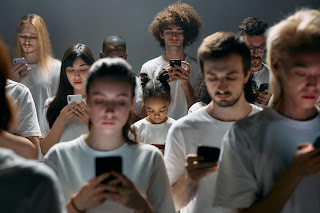In recent years, TikTok influencers have risen to prominence, captivating audiences worldwide with their creativity, charisma, and authenticity. This phenomenon has transformed the landscape of social media, reshaping the way we consume content, interact with celebrities, and perceive fame. But what are the factors driving the popularity of TikTok influencers? What is the genesis of the mechanisms to their success, and their impact on contemporary society? We are going to do a brief analysis and breakdown.
TikTok, a video-sharing platform known for its short-form content and algorithm-driven feed, has provided a fertile ground for aspiring influencers to showcase their talent and build a loyal following. Unlike traditional celebrities, TikTok influencers often come from diverse backgrounds, ranging from amateur dancers and comedians to makeup artists and fitness enthusiasts. This democratization of fame has allowed individuals from all walks of life to attain celebrity status, resonating with audiences who crave authenticity and relatability.
One of the key reasons for the popularity of TikTok influencers is their perceived authenticity and relatability. Unlike polished and curated content found on other social media platforms, TikTok videos often feature raw and unfiltered moments that reflect the everyday experiences of ordinary people. This authenticity fosters a sense of connection and intimacy between influencers and their followers, leading to increased engagement and loyalty.
TikTok's user-friendly interface and diverse array of editing tools have empowered influencers to unleash their creativity and innovation. From choreographed dance routines to comedic skits and DIY tutorials, TikTok influencers have embraced a wide range of genres and formats to captivate their audience. This emphasis on creativity and originality has enabled influencers to stand out in a crowded digital landscape and garner attention from brands and marketers seeking to collaborate with trendsetters.
The algorithm-driven nature of TikTok's feed has played a crucial role in propelling influencers to fame and fortune. TikTok's algorithm analyzes user behavior, preferences, and engagement patterns to curate personalized content tailored to each individual user. This algorithmic discoverability has enabled lesser-known influencers to go viral overnight, reaching millions of viewers and catapulting them to stardom. The potential for virality on TikTok has leveled the playing field, allowing newcomers to compete with established influencers on equal footing.
As TikTok influencers amass large followings and attract attention from brands and advertisers, they have unlocked lucrative monetization opportunities. Brands are eager to collaborate with influencers to leverage their reach and influence to promote products and services to a highly engaged audience. From sponsored content and brand partnerships to affiliate marketing and merchandise sales, TikTok influencers have diversified their revenue streams, turning their passion into profit.
Beyond entertainment and commerce, TikTok influencers wield significant social impact and cultural influence, shaping trends, driving conversations, and advocating for social causes. Influencers have used their platform to raise awareness about important issues such as mental health, body positivity, and environmental sustainability, mobilizing their followers to take action and effect change. The ability of TikTok influencers to catalyze social movements and spark meaningful conversations underscores their role as cultural tastemakers and influencers.
Below I have provided my own take and a list of negative aspects I find to be concerning and detrimental to societal progress. This is a short list of five negative connotations I have experienced, and many of my peers have experienced, since downloading the app in 2022.
Mental Health Struggles: TikTok's emphasis on perfection and popularity has exacerbated mental health issues among young users. The constant exposure to curated content, comparison culture, and unrealistic beauty standards can lead to feelings of inadequacy, anxiety, and depression. Moreover, the pressure to gain likes, followers, and validation from peers can fuel a sense of worthlessness and self-doubt, contributing to poor mental wellbeing.
Body Image Concerns: The created culture of idealized beauty and body standards has perpetuated unrealistic expectations and body image concerns among young users. Influencers often showcase their flawless appearances and filtered images, creating an unattainable standard of beauty. This can lead to body dissatisfaction, disordered eating behaviors, and a negative body image among individuals, especially impressionable teenagers.
Cyberbullying and Online Harassment: Anonymity and lack of accountability have made TikTok a breeding ground for cyberbullying and online harassment. Users, particularly young people, are vulnerable to bullying, hate speech, and harassment from peers and strangers alike. The platform's comment section and duet feature can be used to target and ridicule individuals, leading to psychological distress and social withdrawal.
Addiction and Screen Time: The addictive nature and algorithm-driven feed can lead to excessive screen time and smartphone addiction among users. The platform's endless scroll feature encourages users to spend hours mindlessly scrolling through content, often at the expense of real-life interactions, hobbies, and responsibilities. Excessive use of TikTok can disrupt sleep patterns, impair concentration, and negatively impact academic or professional performance.
Social Comparison and FOMO: TikTok fosters a culture of social comparison and fear of missing out (FOMO) among young users. The highlight reel of curated content and glamorous lifestyles can lead individuals to compare their own lives unfavorably, feeling inadequate or left out in comparison. This constant need to keep up with trends and peers can fuel anxiety, insecurity, and a sense of social isolation among users.













